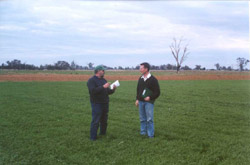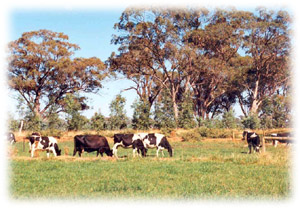Step 1 - What do I want to achieve?
Step 1.1 - What do I want to achieve from this investment?
Before undertaking a major irrigation investment, you need to consider your long-term business goals and circumstances in detail. Your goals depend on many things including your family circumstances, age, financial situation and the duration for which you plan to be in the farm business. You can attend seminars, workshops or training courses that cover issues that can help you to better define your long-term goals so that you can work towards achieving what you want.
It is important to know what you want to achieve through your investment. For example, your objective may be to increase yield, to reduce water use per hectare, to reduce labour costs, or to grow a more valuable crop.
This step cannot give you the answers; you have to determine yourself what your priorities are.
Page top
Step 1.2 - Will this investment be consistent with my long-term business goals?
Before undertaking a major irrigation investment, you need to consider your long-term business goals and circumstances in detail. Your goals depend on many things including your family circumstances, age, financial situation and the duration for which you plan to be in the farm business. You can attend seminars, workshops or training courses that cover issues that can help you to better define your long-term goals so that you can work towards achieving what you want.
A few references for further information:
|  Your farm consultant can help |
It is important to know what you want to achieve through your investment. For example, your objective may be to increase yield, to reduce water use per hectare, to reduce labour costs, or to grow a more valuable crop.
This step cannot give you the answers; you have to determine yourself what your priorities are.



